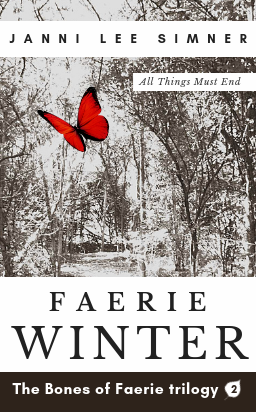Writing is a strange business sometimes. We think we’re writing for readers, and then it turns out we’re writing for ourselves. We think we’re writing for our present selves, and then it turns out we’re writing for the children-we-were or the adults-we-will be.
Or both. Today I came upon ”Seal Story,” a selkie short I wrote more than a decade ago. Selkie stories are by their nature about the pull between two worlds, and when I wrote this one, I was thinking about my fears around one day becoming a mother, about the tensions between the creative world I already inhabited and the world of parenting, which are often presented as two very different, irreconcilable things.
But when I reread the story today, I found myself thinking instead about losing my own mother, and my struggles with being her adult child—about reconciling her need to be so many things to so many people with figuring out my own place in her life.
I don’t know whether Mom and I ever got to the final version of this story. I do know there are things I need to think about here, though, and that this was a story I needed to reread today.
In case it’s a story you need—or even just want—right now as well, I’m sharing it below.
Seal Story
You know this story.
Once long ago, there was a seal who loved the sea. On bright days she swam through the warm water, while waves crested with foam and salt scented the air. Yet she also loved the land, so on dark nights she shed her skin, took on human form, and danced, not through waves, but on cool, wet sand.
One night a young man caught sight of her, and when he crouched behind the rocks to watch her dance, he also caught sight of her gray skin shining in the moonlight. The young man couldn’t believe his good fortune. He stole the skin, and he hid it like the treasure it was.
The seal woman had no choice. She could not turn back to a seal; she could not return to the ocean. Instead she made her way to the young man’s home, and if the road that led there cut her bare feet, this story does not tell of it. It tells only that the man and the seal woman were soon married, and that they lived together in his house near the sea. Whether she grew to love him or hated him all her days–the story does not tell that, either.
What it does tell is this: in time, the seal woman had children. Her love for them was as deep as the sea, the joy she found in them as true as the stones beneath it.
And yet.
The young man’s house faced the ocean, and through its windows the seal woman could see the changing tides. Walking its halls, she could hear the crashing waves. Restlessly she paced those halls, long after her children slept, until one night she found the skin the man had hidden. In the attic, in the cellar, beneath a stone–again the story is silent. It says only that the sea grew loud, so loud, as she held her skin once more.
She could not ignore that call. She kissed her children as they slept, and she crept quietly down to the sea. But her eldest daughter woke, and heard, and ran after her mother.
The girl wasn’t fast enough. As she reached the sand a flash of gray disappeared beneath the water, and then she saw only waves.
This girl was human-born; she could not follow her mother. She returned to her father’s home, and the stones did not cut her feet. But even as she walked, she knew she would never forget that while her mother loved her as deeply as the sea, the depths of the sea were nothing, beside her mother’s love for being a seal. She would never forget, and she would never forgive.
You do not want this story. You are a child; you are unkind. The seal woman’s happiness means less, to you, than the girl’s.
Very well.
Once long ago there lived a seal who loved the sea. When she sought to return to it, her daughter ran after her.
The girl was fast enough. She cried out, before the seal woman disappeared beneath the waves, “Do not leave me!”
The seal woman heard, and her daughter’s voice pulled on her, as strong as the tides. She could not ignore that call. She shed her skin once more, and she carried it back to the young man’s house, her daughter clutching her hand all the way.
She found joy in her children for many years more.
And yet.
In the end her children grew up and moved away, even the daughter who’d begged her to stay. The young man grew old and died. The seal woman also grew old, too old to return to the ocean. She lived, bitter and alone, in the house near the sea.
She did not forget, and she did not forgive–not the young man who stole her from the water, and not the daughter who stopped her when she sought to return.
You don’t want this story either. You want the seal woman to be happy, and her daughter as well. You are trying to be kind.
Try this, then: The girl ran to the edge of the sea, and her mother heard her cries and knew she could not go.
Not that night, and not for many nights after. But one night, when her daughter was nearly grown, the seal woman returned to the waves after all. She did not kiss her children goodbye this time. She did not want anyone calling her back.
Her daughter mourned, but in time she did forgive. She knew her mother had stayed as long as she could. Besides, the girl lived in another town by then, or perhaps even in the city. She had a young man of her own, and she did not wish to return to the house by the sea, for her mother or anyone else. Instead she married, and in time bore children who pulled on her, strong as the tides.
And yet.
The story does not say whether the daughter ever longed to escape her own young man, or even her own children. It says only that she knew she could not leave, not when her mother had left her.
You are still not satisfied. You will have a happy ending, or else none at all.
I cannot give it to you. I can only give you this: The girl was fast enough, and the seal woman heard her cries, even before she pulled her seal skin over her human one.
So she did not go, but neither did she promise to stay. She drew her human daughter close. “I was a seal before you were born,” she said. “I will be a seal after you leave. I am a seal now, and I am also your mother. I will not be only one thing or the other.”
The girl did not understand. She only cried louder, because she thought her mother was leaving her after all.
“Trust me,” the seal woman whispered. She pulled on her seal skin then, and she slid into the sea.
I do not know this story.
Perhaps the girl goes home to mourn her loss, only to have her mother return to her, hours past dark. Perhaps she waits by the water’s edge until the seal woman reappears, dripping and human, to take her daughter once more in her arms.
What I do know is this: as her children grow, the seal woman spends time on land and time at sea. Perhaps the girl rages at this, and perhaps she weeps, because she misses the seal woman, when she is away. Because she wants her mother to be one thing, for her and no one else. I do not know whether the girl will come to understand, in time. Perhaps she’ll forever fear the day the seal woman will leave her for good.
And the seal woman will leave in the end, though not for the sea. You are a child, but surely you know this.
Still, when that day comes there will be nothing to forgive and nothing to forget. By then the girl might have children of her own, in this town or another. I like to think one day she’ll turn to them and say, “Your grandmother, she lived on land, but she also lived in the water.”
I hope there’ll be more joy than sorrow in her voice when she says it, and when she takes her human children into her arms. “Once long ago,” she’ll whisper to them, “there was a seal who loved the sea.”
Then she’ll smile, because she knows this story.
“Seal Story” first appeared in Merry Sisters of Fate on February 28, 2011. You can find a full list of my stories here.

![[Invasive Species: Book Cover]](https://www.simner.com/wp-content/uploads/2021/12/96CFF1F4-6102-4CB0-AB0C-3B140E6E8515-188x300.jpeg)
![[Faerie Winter Cover]](https://www.simner.com/wp-content/uploads/2019/05/faeriewinter-ebook-cover-188x300.jpg)



 Stop by and get a copy personalized for the adventurer in your life—even if (especially if) that adventurer is you.
Stop by and get a copy personalized for the adventurer in your life—even if (especially if) that adventurer is you.